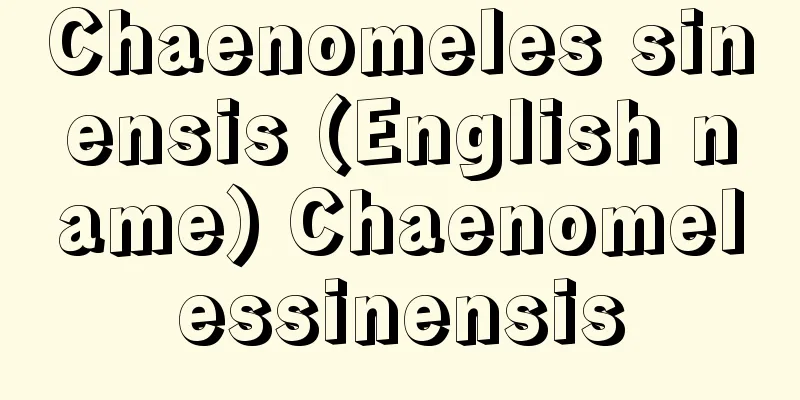Outer Space Treaty

|
Its official name is the Treaty on Principles Governing the Activities of States in the Exploration and Use of Outer Space, Including the Moon and Other Celestial Bodies. It was created as a result of the work of the United Nations to establish space law, and came into force in October 1967. Japan actively participated in the establishment of this treaty and is a member state of the treaty. It is the first basic law on space in human history, and it defines the legal status of outer space and celestial bodies, which had been legally blank until then, and incorporates it into the legal order of mankind. The treaty is both a "basic law on space" and a "outer space disarmament treaty." The basic structure of the treaty is based on six fundamental principles - the principle of peaceful uses, the principle of space uses, the principle of freedom of space activities, the principle of non-territorialization, the principle of international cooperation, and the principle of respect for the interests of other countries - and combines these with provisions for the establishment of a legal order and provisions for international cooperation. [Ikeda Fumio] Aspects of the Basic Space LawThe Treaty is the basic law for space activities, and it regulates the use of space by law and established a legal order in space. The most fundamental principle is the principle of space utilization, which states that space activities are conducted for the benefit of all nations and are a field of activity recognized by all humankind, a concept unknown in conventional international law. All nations can freely explore and use space without discrimination and in accordance with international law (principle of freedom of space activities). Outer space and celestial bodies are the common property of humankind, and no nation can claim sovereignty, ownership, or exclusive use over them (principle of non-appropriation). Space activities are first governed by the Outer Space Treaty, and then general international law and the United Nations Charter are applied or applied mutatis mutandis. The crew of a spacecraft are under the jurisdiction of the country of registration (home country), and the nation bears international responsibility for space activities, while the space activities of private companies are permitted subject to the permission and continuous supervision of the nation, and the nation bears direct international responsibility for the space activities of private companies. For the space activities of international organizations, both the international organization and the parties to this treaty who are members of the international organization bear international responsibility. The treaty applies to the space activities of international intergovernmental organizations, and the rights under the treaty are granted. States parties to the Treaty are liable for damage caused by space launched objects. Space activities must be carried out in accordance with the principles of international cooperation and mutual assistance (principle of international cooperation) and with due regard for the corresponding interests of other States (principle of respect for the interests of other States). [Ikeda Fumio] Provisions for international cooperationThe principles of international cooperation are embodied in the following provisions: rescue and repatriation of astronauts, recovery and return of space launched objects, international consultation on the prevention of harmful pollution and harmful space activities, facilitation of observation of space objects, and notification of space activities. [Ikeda Fumio] The aspect of the Outer Space Disarmament Treaty: the principle of peaceful usesThis treaty is one of the secondary measures of disarmament following the Antarctic Treaty and the Partial Nuclear Test Ban Treaty, and prohibits the placement of weapons of mass destruction such as nuclear weapons in Earth orbit, on celestial bodies, or in outer space. This means that nuclear satellites such as hydrogen bomb satellites and nuclear bases on the moon and other places are prohibited. Celestial bodies are completely demilitarized and used only for peaceful purposes. Areas on celestial bodies can be freely inspected, and bases, facilities, and spacecraft on celestial bodies are open to inspection by other countries on the condition of reciprocity and reasonable notice. The problem is that outer space has not been completely demilitarized, and military satellites such as reconnaissance satellites, military communication satellites, and navigation satellites are not prohibited by this treaty. These satellites are the central nervous system of the nuclear strategic system that connects the nuclear submarines and command bases of the United States and Russia, and this is a major problem. Even after the end of the Cold War between the East and the West, there has been no fundamental change in such armaments in space. [Ikeda Fumio] [Reference items] | |Source: Shogakukan Encyclopedia Nipponica About Encyclopedia Nipponica Information | Legend |
|
正称はTreaty on Principles Governing the Activities of States in the Exploration and Use of Outer Space, Including the Moon and Other Celestial Bodies「月その他の天体を含む宇宙空間の探査及び利用における国家活動を律する原則に関する条約」。国連における宇宙法の制定作業の成果として生まれ、1967年10月発効。日本はこの条約の制定に積極的に参加し、条約加盟国となっている。人類初めての宇宙についての基本法で、これまで法的には白紙であった宇宙空間と天体の法的地位を定め、これを人類の法秩序のなかに組み込んだ。条約は「宇宙基本法」であるとともに「宇宙軍縮条約」としての性格をもっている。 条約の基本的な構造は、平和利用原則、宇宙利用原則、宇宙活動自由の原則、領有禁止原則、国際協力原則、他国利益尊重の原則の六つの基本原則を支柱として、これに法秩序の創設のための諸条項と国際協力の諸条項とを組み合わせたものである。 [池田文雄] 宇宙基本法としての側面条約は宇宙活動の基本法であり、宇宙の利用を法によって規制し、宇宙における法秩序を創設した。もっとも基本的な大原則は、宇宙活動は万国の利益のために行われ、全人類に認められる活動分野であるとする宇宙利用原則で、従来の国際法には未知の観念である。宇宙はすべての国が無差別平等に国際法に従い自由に探査利用することができる(宇宙活動自由の原則)。宇宙空間と天体は人類の共有物であり、これについて国家は領有権や所有権・排他的使用権を主張できない(領有禁止原則)。宇宙活動はまずこの宇宙条約に従い、次に一般国際法、国連憲章が適用あるいは準用される。宇宙船の乗組員はその登録国(本国)の管轄の下に置かれ、宇宙活動については国家が国際責任を負い、私企業の宇宙活動は国の許可と継続的監督を要件として認められ、私企業の宇宙活動についても国家が直接に国際責任を負う。国際機関の宇宙活動については、国際機関と国際機関の構成員であるこの条約の当事者との双方が国際責任を負う。政府間国際機関の宇宙活動については条約が適用され、条約上の権利が与えられる。条約の当事国は宇宙打上げ物体による損害に対して責任を負う。宇宙活動は国際協力と相互援助の原則に従って行い(国際協力原則)、他国の対応する利益に妥当な考慮を払って行わなければならない(他国利益尊重の原則)。 [池田文雄] 国際協力の諸条項国際協力原則を具体化したものに次の諸条項がある。宇宙飛行士の救助と本国送還、宇宙打上げ物体の回収と返還、有害汚染の防止と有害宇宙活動についての国際的協議、宇宙物体の観測の便宜、宇宙活動の通報。 [池田文雄] 宇宙軍縮条約としての側面――平和利用原則この条約は、南極条約、部分的核実験停止条約に続く軍縮の副次的措置の一つで、核兵器などの大量破壊兵器を地球軌道に乗せ、天体に設置し、宇宙空間に配置することを禁止している。これにより、水爆衛星などの核衛星、月面上などの核基地は禁止されることになった。天体は完全に非軍事化され、平和目的のみに利用される。天体上の地域は自由に査察され、天体上の基地、施設、宇宙機は相互主義と合理的な予告という条件のもとに他国の査察に開放される。問題は宇宙空間が完全には非軍事化されなかった点にあり、偵察衛星、軍事通信衛星、航海衛星などの軍事衛星はこの条約では禁止されていない。これらの衛星は米ロそれぞれの核潜水艦と指令基地とを結ぶ核戦略システムの中枢神経となっており、ここに大きな問題がある。東西の冷戦解消後も、このような宇宙の軍備について基本的な変化はみられない。 [池田文雄] [参照項目] | |出典 小学館 日本大百科全書(ニッポニカ)日本大百科全書(ニッポニカ)について 情報 | 凡例 |
<<: Space Hydrogen Bomber Battle
>>: Cosmic tree - Uchuuju (English spelling)
Recommend
Steinkern
…In the case of bivalves, the internal male mold ...
Orthography - Seishoho
A translation of orthography. It is also called o...
Yoshino [town] - Yoshino
A town in Yoshino County, central Nara Prefecture....
Air rifle competition
... The targets are usually paper targets, but si...
Weores S.
…This strengthened the ties with Ady, who lived i...
Market Square - Ichiba Hiroba
…These three functions existed throughout Western...
Pawnbroker's Ranch - Shidoronomaki
A ranch in the late ancient period in Totomi Provi...
Reef flat
...As a result, coral reefs are broadly classifie...
Nan Madol (English spelling)
The largest megalithic ruins in Oceania. They are ...
Wooden tile - Kigawara
…The most common type is a rectangular prism with...
Urnenfeld culture
A culture from the European Bronze Age. It is usua...
Karappa (box crab)
A general term for crabs of the genus Calappa , f...
Revetment - Gogan (English spelling)
A facility that covers the existing ground of a r...
Spiritualism - Yuishinron (English spelling) spiritualism
A theory that preaches the independent existence a...
Scripps-Howard
…In 1923, Munsey also bought the Herald and absor...









